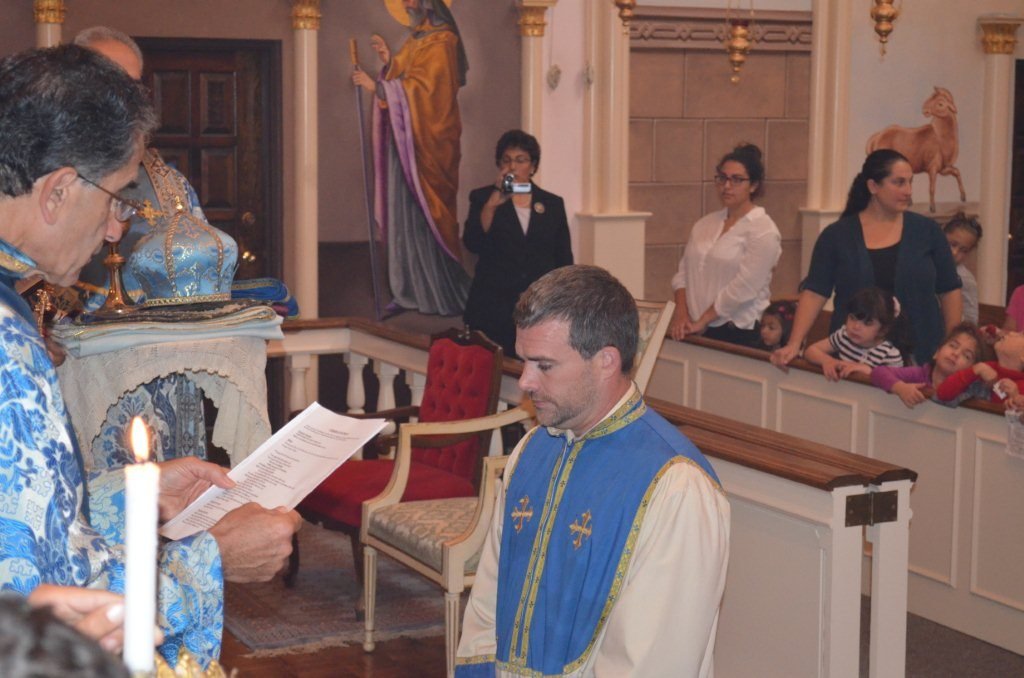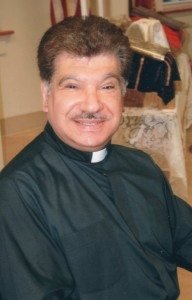The next time you go by an Armenian church or community center, take a good look around and you may notice something peculiar.

Many of the top executive roles are being filled by “odars” who beckon the call to duty. Yes, they are non-Armenians who answer to the name of Smith, Jones, and Rogers.
Not that this is bad. In some cases, they are more Armenian than the spouses they married or the lineage they relinquished. Many enjoy the best of both worlds.
A while back, I attended a Badarak in which the Hayr Soorp gave an entire sermon about our heritage being diluted by mixed marriages and encouraged his congregation to mobilize their own race by “sticking to their own kind.”
Most of those attending church that day took exception to his remarks. There were non-Armenians in the choir and even had roles on the altar. They were the ones who enhanced his church population, not diminished it.
A month ago in Merrimack Valley, an Armenian church honored two individuals who were woven into the Armenian mainstream by spouses born into the race. Jeremy Oldham was ordained a sub-deacon at Sts. Vartanantz Church in Chelmsford, while Pat Amboian was honored for her years of dedicated service and commitment.
In Pat’s case, her work throughout the general Armenian community remains exemplary, especially her role with genocide commemoration, while husband John continues his role as an activist in many causes. They make the perfect pair and are rarely seen apart.

As for Oldham, he became attached 15 years ago after meeting his Armenian wife Denise Adamian. A barbequing stint at a church bazaar led to a role at the altar. In that capacity, he learned to perform different parts of the Holy Badarak at Sts. Vartanantz.
“Jeremy is truly a unique individual in terms of his dedication and determination to learn how to read classical Armenian and the various chants in our service,” said Deacon Ara Jeknavorian, with whom he serves. “He certainly is a source of inspiration for others of his kind. We have a culture that’s meant to be shared and appreciated by all humanity.”
When Oldham was baptized into the Armenian church at St. James shortly after proposing to his wife, his father-in-law Harry Adamian opted to serve as his godfather.
“For me, it’s been a series of invitations, each one carrying me a little further down the Armenian path,” Oldham brought out. “There was no turning back.”
He’s become a Parish Council secretary and has attended Armenian school over the years to learn the language. Two children, Samantha, 10, and Harry, 7, are involved. His mother-in-law, Diana Adamian, lives with the family.
“Learning the dialect and chants was daunting at first,” he admits. “I had a hard time pronouncing the words and making the correct sounds. Many people helped me with the pronunciations. It’s remained a work in progress.”
His ordination was truly a memorable day, being in front of a packed congregation and given the rites by Archbishop Khajag Barsamian, primate. His pastor, Der Khachatur Kesablyan, was bursting with pride. In attendance was Oldham’s family from North Carolina.
“I’m hoping my next step will be a full deacon,” he confirms.
Amboian is Irish through-and-through. She’s described as a “Jill-of-all-trades” inside the Armenian church, even serving as Parish Council chairwoman. She sings in the choir, taught Sunday School, and remains a staunch performer on committees.
“I’m grateful for the opportunity to embrace such a beautiful heritage,” she has often repeated to others. “I may be considered an ‘odar’ but I feel very Armenian.”
The first time Father Lenny Faris walked into Holy Cross Armenian Church in Lawrence, he was a young man working at his dad’s grocery store where the late Rev. Fr. Vartan Avakian was a familiar customer.
One day, he decided to investigate after hearing the sounds of a beautiful choir from an open window and began attending Sunday Badarak. His Lebanese background was no deterrent.
The director (Mary Bogosian) invited him to join and he remained a part of the chorale for the next 10 years, learning how to read and write Armenian, and to pray as well.
Through those fateful moments in his life, it led to a career with the church. He is now Rt. Rev. Archmandrite Leonard Faris, pastor of St. George Antiochian Orthodox Church in Lowell, a parish with 150 families comprised mostly of Middle Eastern faction.
“Though we have no Armenian blood in our family, we have many Armenian friends,” he points out. “I still remember my prayers in Armenian and can celebrate the Soorp Badarak with one of the Armenian priests.”
His closest friend was the late Rev. Vartan Kessabian. The two often visited one another and sermonized in each other’s churches.
“I have been inspired by His Eminence Archbishop Oshagan Choloyan and His Grace Anoushavan Tanielian,” he notes. “We’re all spiritual brothers in Christ, committed to perpetuating our faith and heritage. I often think back to those earlier days and how they influenced my life.”
Hearing Karen Guzelian sing the Badarak on Sunday mornings at St. Gregory Church in North Andover, one would never know she was of Greek ancestry (Plakas) without an ounce of Armenian blood. She married an Armenian named Charles. You see her regularly. He appears less often.
The two children became woven into the heritage, thanks to her. Michael was ordained as an acolyte. Both he and sister Krista were part of the Armenian/Sunday School. Krista also sang in the choir before college.
Karen served four years as a trustee member and taught Sunday School for many years.
“My husband’s glad to see his children involved with the heritage,” she brought out. “The kids needed another influence in their lives and they found it inside an Armenian church.”
At one point, every major executive post inside St. Gregory Church was assumed by an “odar.” Trustees. Men’s Club. Ladies’ Guild. Bingo chairman when it existed.
Today there’s a scholarship in memory of two individuals—David Brundage and Hector Bizios—both of whom wed Armenians. Hector was indispensible with the Bingo mission, helping to raise thousands of dollars to nurture the upkeep.
As for Brundage, nobody sold more Prelacy raffle tickets than this man, making the church his second home. A Distinguished Service Award from the Prelacy was well deserved though modestly accepted.
“The fact I’m not Armenian has nothing to do with my Christian spirit and love of God,” he once proclaimed.
Perhaps it was his 44-year marriage to an Armenian, the former Theresa Kalousdian, that detonated the spark. Or maybe it was his trip to Historic Armenia and a visit to the Island of Aghtamar and to the village of Hisanig, the birthplace of his mother-in-law, that resulted in an article for The Armenian Review.
And yes, there was that dash of humor so often typified his nature.
“People who are so wrapped up in themselves make small packages,” he once said philosophically. “So what if my name didn’t end in IAN. It’s what’s in the heart that counts and my heart rests with the Armenians.”


Super interesting new phenomena and article for me. Thank you for looking into this. This makes the Armenian identity and its institutions more complex than it already was. A new challenge to ‘harmarvel’ to modern changes. Thank you!
Thank you for writing this. As an Armenian with Italian father, odors are well under appreciated and respected for their work in keeping the community together. Its articles like this highlighting the Armenian spirit that hopefully help others see that perhaps they take they culture for granted!
It was my SLOVENIAN dad who took my sister and I to the Armenian church and it was my SLOVENIAN dad whom the Genocide survivors called “daw-os” which means “son”.
Most interesting article. In our small church community, we have two teenagers serving on the Alter – whose only Armenia connection is one Armenian grandparent . None of whom were previously involved in the Armenian community or any type of religious activity,nor did they know the language. It would be interesting to know what attracted them to the Church because it definitly wasn’t parental influence
Our people need to remember what the word ‘odar’ means…. Outsider……
These nonArmenians are ‘ABCs’ : ‘Armenian By Choice’ and the word odar is no longer a proper description to be used for those who feel a part of the Armenian Church and community. We need to be grateful and include them in our Hye family!!